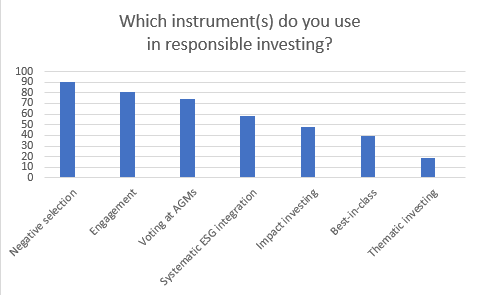finance sociale et investissement responsable Gouvernance Responsabilité sociale des entreprises
ESG : la fin du greenwashing pour la SEC
Ivan Tchotourian 4 juin 2022 Ivan Tchotourian
Intéressante proposition faite récemment par la SEC récemment : « U.S. SEC unveils rules to ensure ESG funds follow through on investments » (Reuters, 27 mai 2022).
Proposition de la SEC :
Extrait
The U.S. Securities and Exchange Commission (SEC) on Wednesday proposed a pair of rule changes aimed at stamping out unfounded claims by funds on their environmental, social and corporate governance (ESG) credentials, and enforcing more standardization of such disclosures.
The proposals, which are subject to public input, outline how ESG funds should be marketed and how investment advisors should disclose their reasoning when labeling a fund.
The new « Fund Names » proposal would seek to expand the number of funds that must invest 80% of their assets in line with their names and investment policies.
À la prochaine…
Divulgation finance sociale et investissement responsable Gouvernance Responsabilité sociale des entreprises
Fonds de pension hollandais : fronde contre le greenwashing
Ivan Tchotourian 23 novembre 2020 Ivan Tchotourian
IPE Magazine de novembre 2020 publie un article de Tjibbe Hoekstra initulé : « Survey: Dutch pension funds accuse asset managers of greenwashing » (16 septembre 2020).
Extrait :
Some asset managers do not invest as responsibly as they claim, a number of Dutch pension funds have said.
In a survey among 31 Dutch pension funds carried out by Dutch pensions publication Pensioen Pro, six in 10 Dutch pension funds agreed with the statement that some asset managers engage in greenwashing.
None of the participating pension funds, with combined assets under management worth €1.2trn, disagreed with the statement that greenwashing is a problem.
An important reason asset managers are being given the chance to engage in greenwashing is a lack of commonly agreed environmental, social, and corporate governance (ESG) standards, many pension funds believed.
Some 56% of respondents even saw the absence of a common ESG definition as a threat to responsible investing, the survey found.
Responsible investing is a rising trend in the Dutch pension sector, with 87% of the surveyed funds now having their own sustainable investment policy. The remaining 13% have outsourced this to their fiduciary manager.
None of the surveyed funds said they have no dedicated policy for responsible investing.
À la prochaine…
Nouvelles diverses responsabilisation à l'échelle internationale
Corporate greenwashing : retour sur une notion et ses pratiques contemporaines
Ivan Tchotourian 9 septembre 2016
The Guardian offre un très bel article qui revient sur la notion de greenwashing : « The troubling evolution of corporate greenwashing » (Sam Watson, 20 août 2016). Cet article met en lumière que cette pratique a pris une grande ampleur depuis les années 80 et qu’elle est devenue sophistiquée ne se contentant plus d’être liée aux plaintes suite à des dégâts environnementaux.
The term greenwashing was coined by environmentalist Jay Westerveld in 1986, back when most consumers received their news from television, radio and print media – the same outlets that corporations regularly flooded with a wave of high-priced, slickly-produced commercials and print ads. The combination of limited public access to information and seemingly unlimited advertising enabled companies to present themselves as caring environmental stewards, even as they were engaging in environmentally unsustainable practices.
But greenwashing dates back even earlier. American electrical behemoth Westinghouse’s nuclear power division was a greenwashing pioneer. Threatened by the 1960’s anti-nuclear movement, which raised questions about its safety and environmental impact, it fought back with a series of ads proclaiming the cleanliness and safety of nuclear power plants. One, featuring a photograph of a nuclear plant nestled by a pristine lake, proclaimed that “We’re building nuclear power plants to give you more electricity,” and went on to say that nuclear plants were “odorless […] neat, clean, and safe”.
À la prochaine…
Ivan Tchotourian

